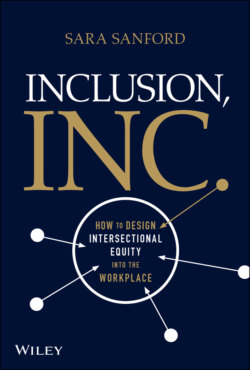Читать книгу Inclusion, Inc. - Sara Sanford - Страница 31
CHAPTER 3 Why Should We Care?
ОглавлениеThree years ago, a high school student named Sanaika reached out to me to ask if she could volunteer for GEN. I confess that I was slow to answer, but she was persistent. She messaged me on LinkedIn, found me on social media, and sent multiple emails. She was going to make herself heard.
I had some reservations about taking on a high school student. I wasn't sure what I could hand over to her. She didn't even have her driver's license yet. What was our liability for a minor? But her messages were so thoughtful and persuasive that I agreed to a one-hour phone call.
Sanaika impressed. She was the head of her school's refugee alliance club; she volunteered playing music for senior citizens; she was partnering with her city's chamber of commerce to pilot transportation options for low-wage workers. She had her sights set on becoming an international human rights lawyer.
I was still hesitant. Then I asked her why she wanted to volunteer for GEN.
“My friends and I are all working really hard to go to college and do big things in the future,” she started, “but I already see the girls being treated differently. They're not called on as often. They're called loud if they speak up. And some of us are going to keep working hard anyways, but we know what bias is, and I don't know what happens to all this hard work if we end up in businesses that are still biased. It's like all our hard work will be wasted.”
She shared how she, herself, was already coming up against the stumbling blocks of bias. “Being an Indian and a woman, I feel like there's a lot of animosity toward me. It could be a major problem if everyone's thinking this way in the future, because these people are going to be CEOs of companies one day. If this is the same attitude they're going to show toward employees, I don't know how the world's going to progress.”
Years later, I still see the moment I said “yes” to Sanaika as one of the best decisions I've made for GEN. Sanaika wasn't a charitable mentoring project. She furthered our organization's mission. She brought perspectives I hadn't considered. Her ability to see past herself to her community and anticipate the future—these were leadership skills. And we almost missed out.
If businesses in the future continue to miss out on Sanaika, the way we almost did, “How,” as she asked, “is the world going to progress?”
